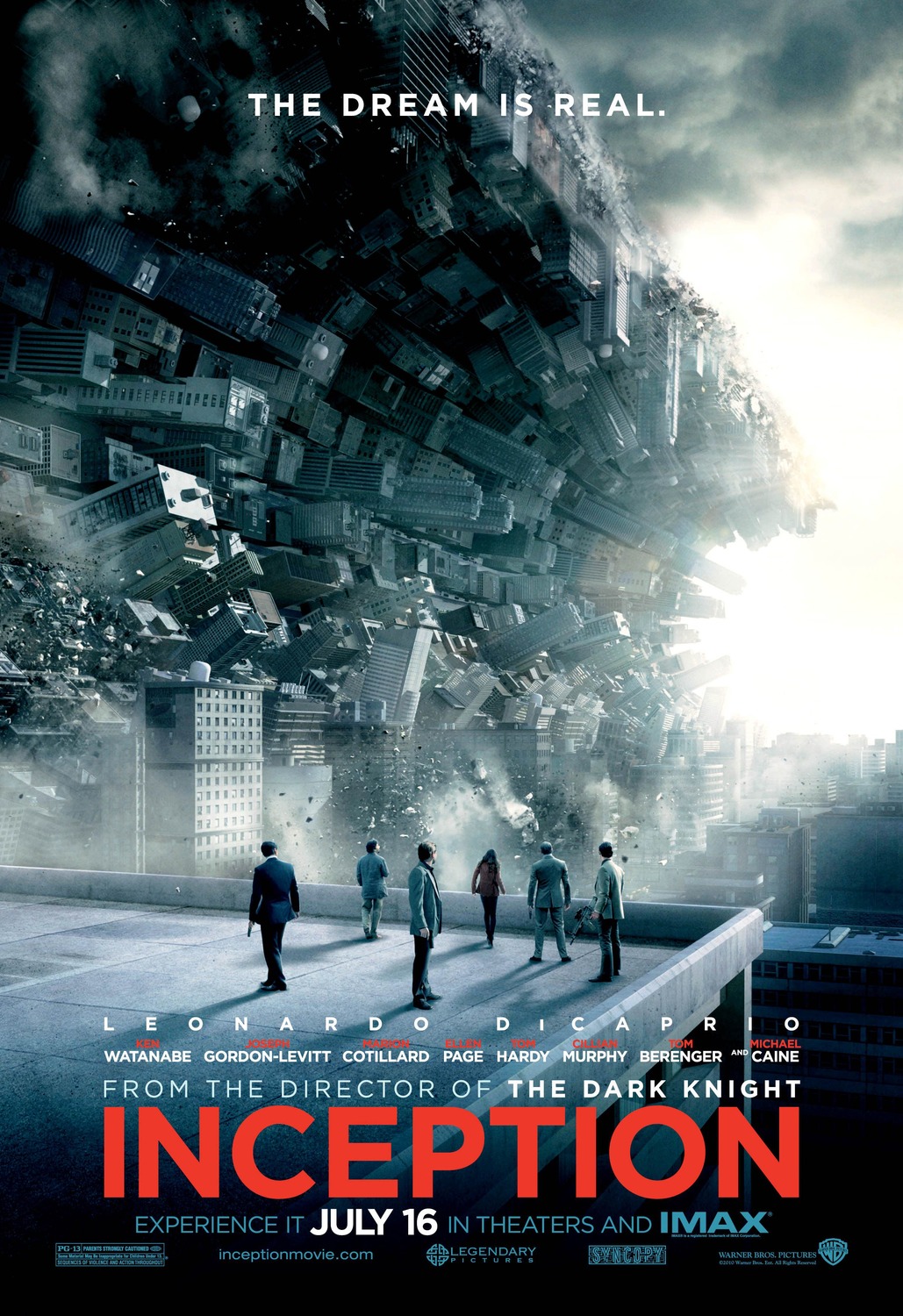Is Group Dreaming Possible?
Mutual dreaming (also
known as shared or group dreaming) is the paranormal claim that two or
more people can share the same dream environment. The concept was
popularized in the 2010 movie, Inception, where lucid dreamers could link up via a device and roam around the subconscious of a single dreamer.
Of course, in reality, no such device
exists and the only mechanism we have for initiating a potential mutual
dream is through the act of lucid dreaming. Regular dreamers can't plan
their dreams in advance nor alter the course of the dream in progress.
But lucid dreamers can. That's why we are poised to prove the existence
of mutual dreaming - if such a phenomenon truly exists.
Types of Group Dreaming
The most commonly reported mutual dreams are known as meshing dreams.
They happen when you share certain dream elements with someone else.
For instance, you and your partner may both watch LOST on TV and then
dream about being stranded on a deserted island. Understandably, your
shared waking experience leads to similar dreams. Even Freudian dream
analysis offers an explanation for this kind of coincidence.
The less likely experiences are called meeting dreams.
This is the true meaning of mutual dreaming, where two or more people
meet up and communicate in the dream world. As yet there is no firm
evidence for the existence of such shared dreams, although it is
arguably a difficult concept to prove.
How would mutual dreaming work? The
definition implies one of two paranormal explanations: either we have
the capacity for telepathic dreams - or the dream world itself is an
external construct, an alternate reality that could stem from an artificial simulation or other shared astral realm.
Mutual Dreaming Experiments
Dr Stephan LaBerge of The Lucidity
Institute believes that mutual dreaming experiments in the lab can test
the objective reality of shared dream worlds.
That means that group dreaming can be used to prove whether the dream world is a genuine alternate reality or not.
Numerous group dreaming experiments and anecdotes have been published over the years.
To learn about some of the more
compelling cases in detail, check out Group Dreaming: Dreams to the
Tenth Power by Jean Campbell. In this book, Campbell traces the entire
history of group dreaming experiments and how harnessing the power of
mutual dreams could change our world today.
How to Mutual Dream (In Theory)
I have never experienced a mutual dream
personally, but there are obvious ways to test your capacity for meshing
and meeting dreams while lucid.
Experiment #1 - Meshing Dreams
Find a meshing dream partner - ideally
someone you are very close with. Choose an activity to do together
during the waking day. Maybe go to a sports event, go hiking in the
countryside, go to the zoo, or watch a movie (fantasy is probably the
best genre for this purpose).
Before you go to sleep that night,
discuss your memorable experience with your meshing dream partner. Talk
about elements that you found most interesting and set a clear intention
to dream about your shared experience.
Hopefully, you will dream about your
waking experience, or a closely related theme. If you become lucid, all
the better. Seek out your meshing partner in the dream and have a lucid
conversation with them. When you wake up, write down all the details of
the dream, including the time you think it happened.
Finally, compare notes with your partner
and see how many dream symbols you can match. Don't influence each
other's dream reports or change your recollection to fit their story. If
you both report a dream conversation, pay particular attention to the
details. You may find you had a meeting dream - the ultimate in
telepathic dreaming!
Experiment #2 - Meeting Dreams
Find a meeting dream partner. If you have
friends who are good at lucid dreaming, invite them to try this
experiment. Otherwise it is easy to seek out other lucid dreamers online
at The Lucid Dreaming Forum. The key is to have a lucid dream at the same time, on the same date.
Select a location to meet up in. If you
both live locally, you might choose a familiar place, like a park or
town center. Otherwise choose a famous meeting spot, like Stone Henge or
the Eiffel Tower. Make sure you describe your destination in detail (or
look at pictures online) so you both have the same location to meet in
mind.
If you do visit the same location in your
lucid dream, it could easily be a meshing dream - a coincidence - so
make sure you meet up in the dream and have an unpredicted conversation.
By reporting the same unique conversation, you could prove an element
of mutual dreaming.
Final Thoughts
When you're exploring a paranormal
phenomenon such as group dreaming, remember to record as much data as
you can and be objective. This means trying to rationalize events as
much as you can before jumping to conclusions - and not getting carried
away by things that could easily be due to coincidence. It's all too
easy to trick ourselves into false beliefs that skew our entire outlook.
One of the brilliant things about lucid
dreaming is that it enables us to explore the dreaming mind in a way no
other research method can. I urge all lucid dreamers to help science
gain a greater understanding of the human mind, and to discover all we
can about the possible existence of mental phenomena like mutual
dreaming.
Acclaimed filmmaker Christopher Nolan
directs an international cast in this sci-fi actioner that travels
around the globe and into the world of dreams. Dom Cobb (Leonardo
DiCaprio) is the best there is at extraction: stealing valuable secrets
inside the subconscious during the mind’s vulnerable dream state. His
skill has made him a coveted player in industrial espionage but also has
made him a fugitive and cost him dearly. Now he may get a second chance
if he can do the impossible: inception, planting an idea rather than
stealing one.
-
Groundbreaking animator Satoshi Kon
(whose credits include Tokyo Godfathers, Millennium Actress, and Perfect
Blue) directed this visually spectacular adaptation of a science
fiction novel by Yatsutaka Tsutsui. Atsuko is a psychiatrist who uses
advanced technology to study the human mind. Atsuko has developed a
machine that will allow her to enter the dreams of her patients and
study their psyches from the inside. Atsuko also does double duty as
Paprika, a high-tech detective who uses this new innovation
to find out the truth about what the people she's trailing really
think. However, Atsuko falls victim to a thief who steals the
one-of-a-kind machine, and Paprika sets out to find it as a wave of
psychological instability tears through the city.
-
visually stunning metaphysical tale of
life after death / the astral plane. Neurologist Chris and artist Annie
had the perfect life until they lost their children in a car accident;
they're just starting to recover when Chris meets an untimely death
himself. He's met by a messenger named Albert and taken to his own
personal afterlife - a freshly drawn world reminiscent of Annie's own
artwork, still dripping and wet with paint.
The multi textured visuals seem to have
been created from a lost fairy tale. The astral world recalls the
landscape paintings of Thomas Cole and Renaissance architecture complete
with floating cherubs. There's no denying Eugenio Zanetti's triumphant
production design and the Oscar-winning special effects, which create a
fully formed universe that is at once beautiful, eerie, and a unique
example of movie magic
.
-
Computer hacker Neo has lived a
relatively ordinary life - in what he thinks is the year 1999 - until he
is contacted by the enigmatic Morpheus who leads him into the real
world.
In reality, it is 200 years later, and
the world has been laid waste and taken over by advanced Artificial
Intelligence machines. The computers have created a false version of
20th century life - called the Matrix - to keep the human minds
satisfied and use their bodies as a power source. Neo, pursued by Agents
(computers who take on human form and infiltrate the Matrix), is hailed
as The One who will lead the humans to overthrow the machines and
reclaim the Earth.
The Matrix is, in essence, a lucid dream,
guided by the AI machines that create the basic rules of the simulated
reality. As Neo learns to bend these rules, he discovers that, like
inside a lucid dream, anything is possible.
-
It’s one of the best movies about lucid
dreaming (having dreams and being able to manipulate them), as well as a
much-overlooked psychological sci-fi masterpiece about the future of
dreams: if given the chance, would you choose to live a dream world, or
would you prefer reality?

.jpg)

.jpg)






Geen opmerkingen:
Een reactie posten